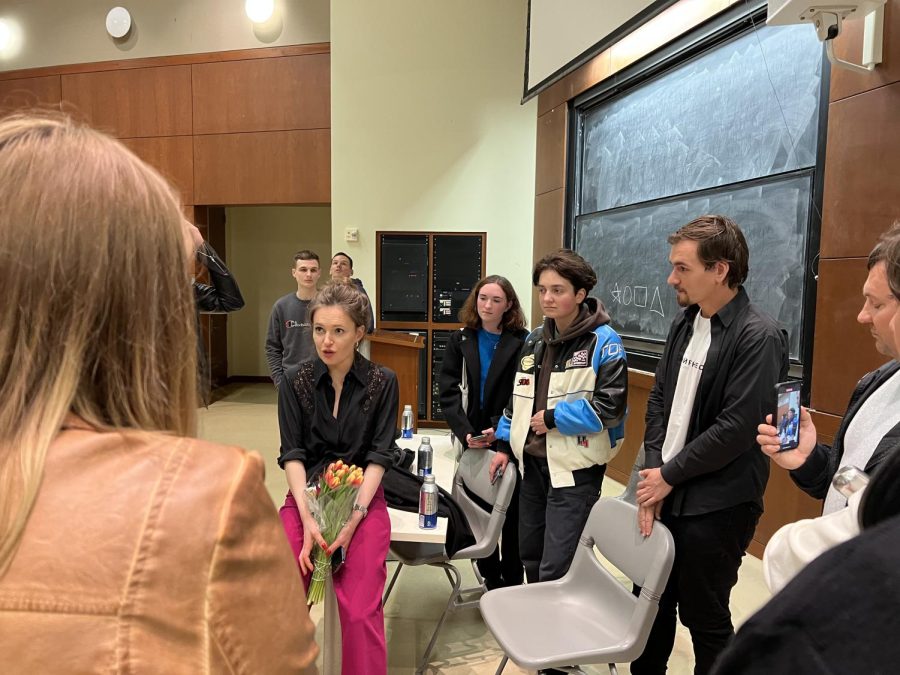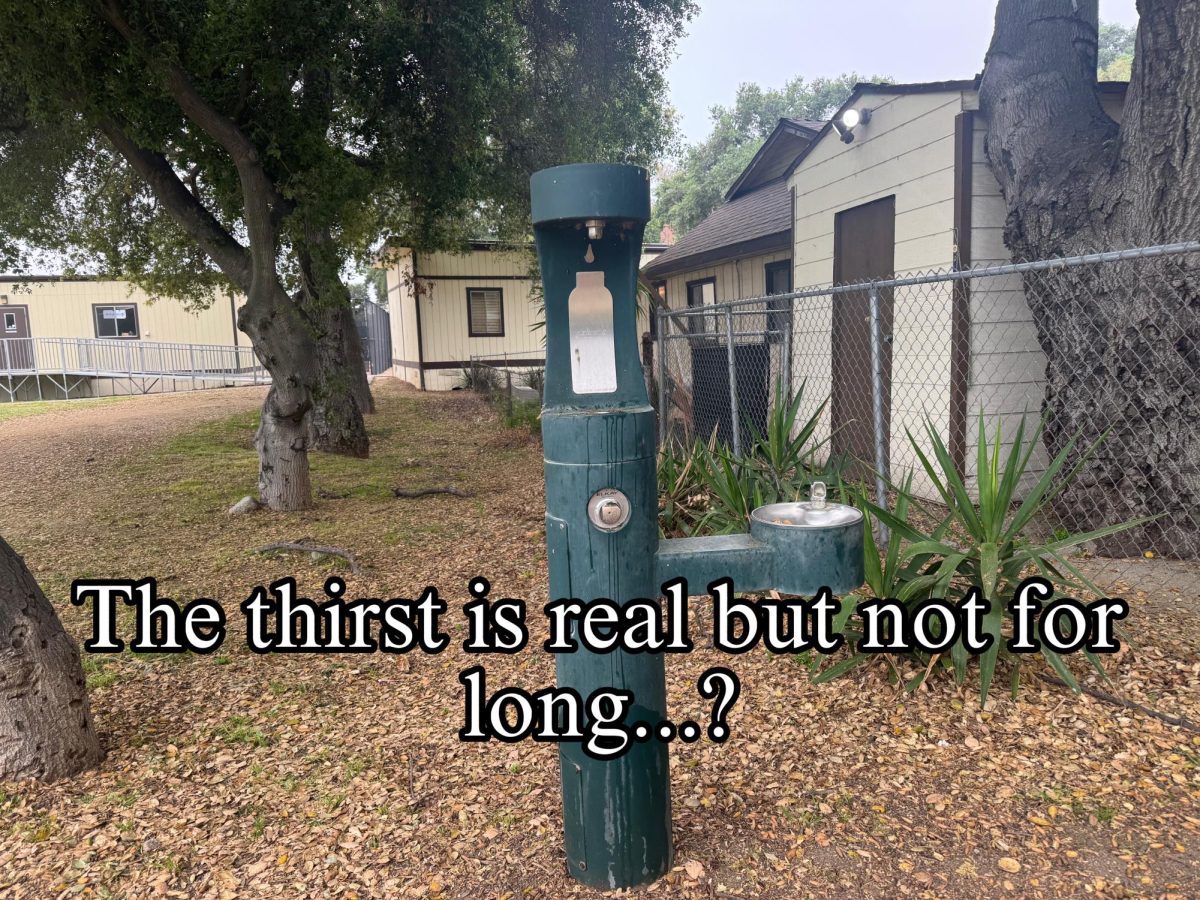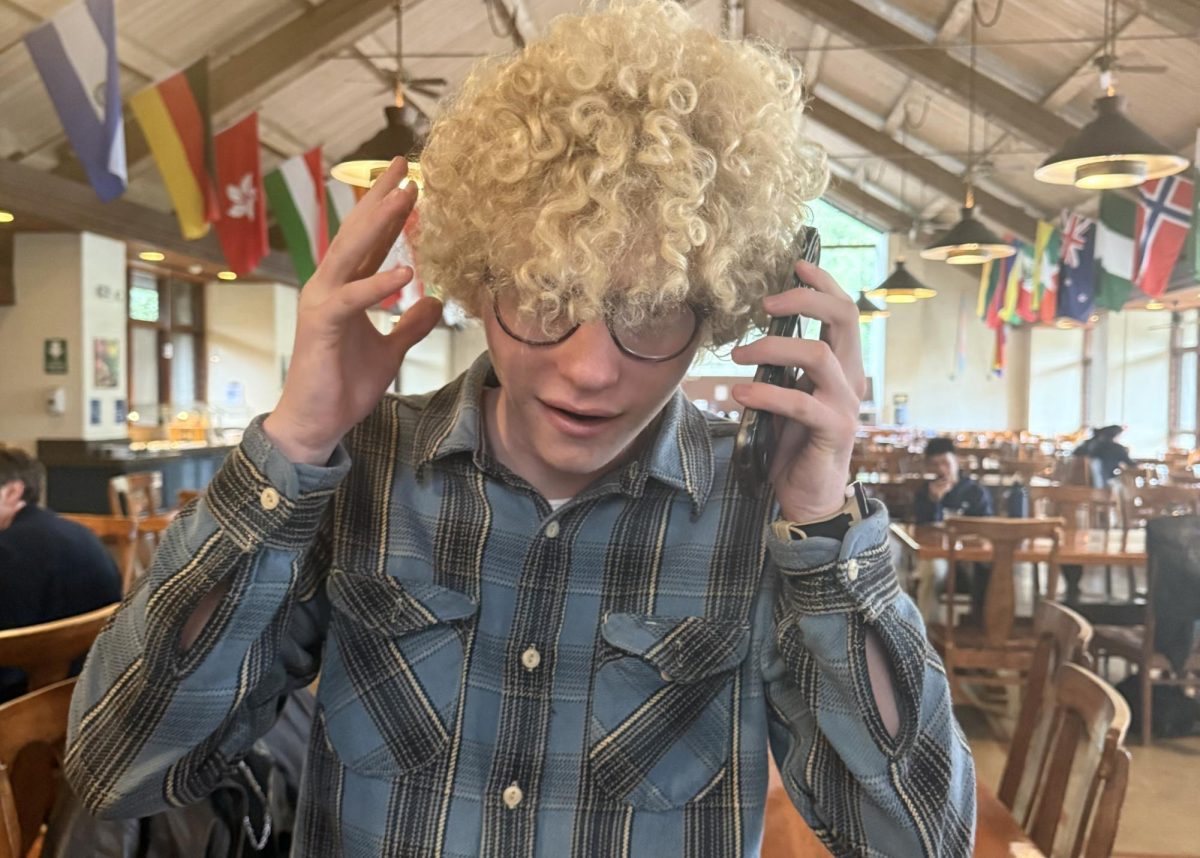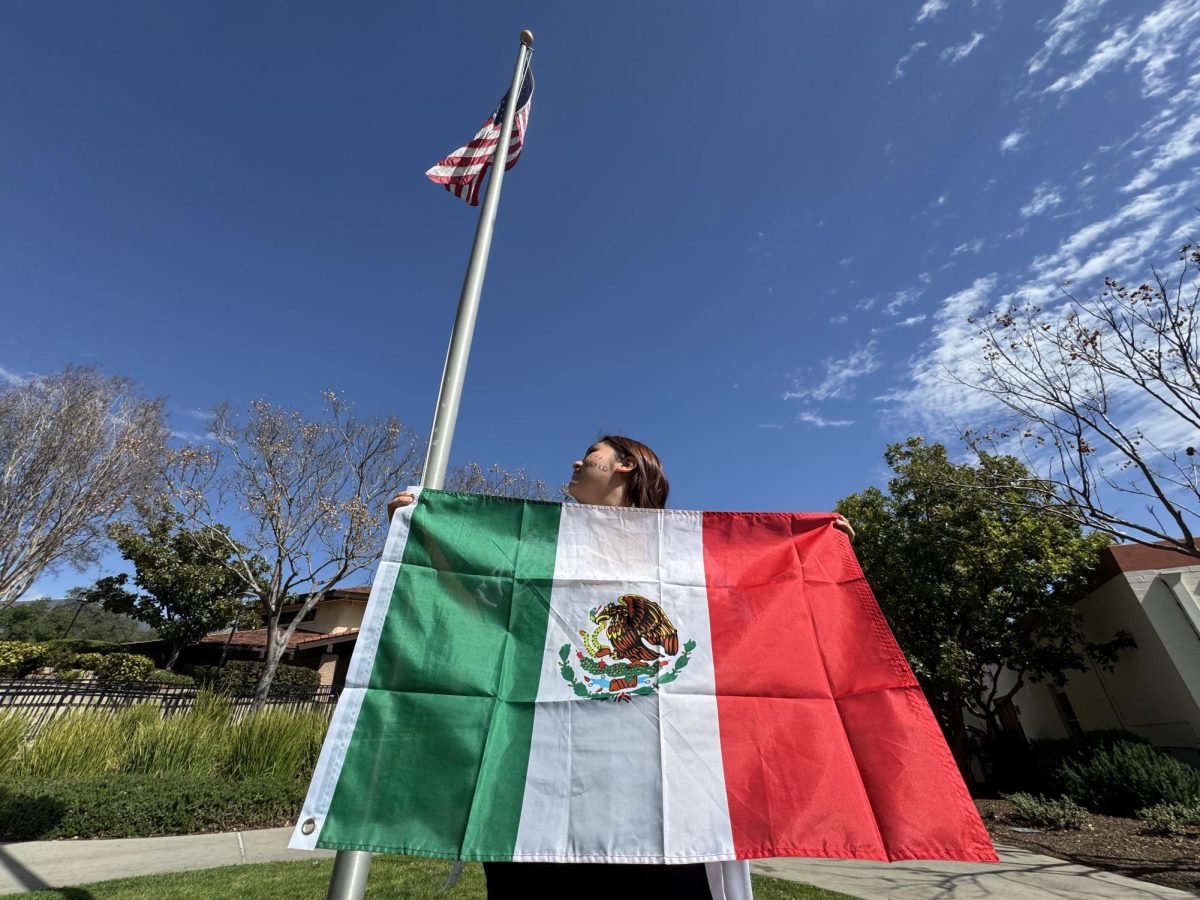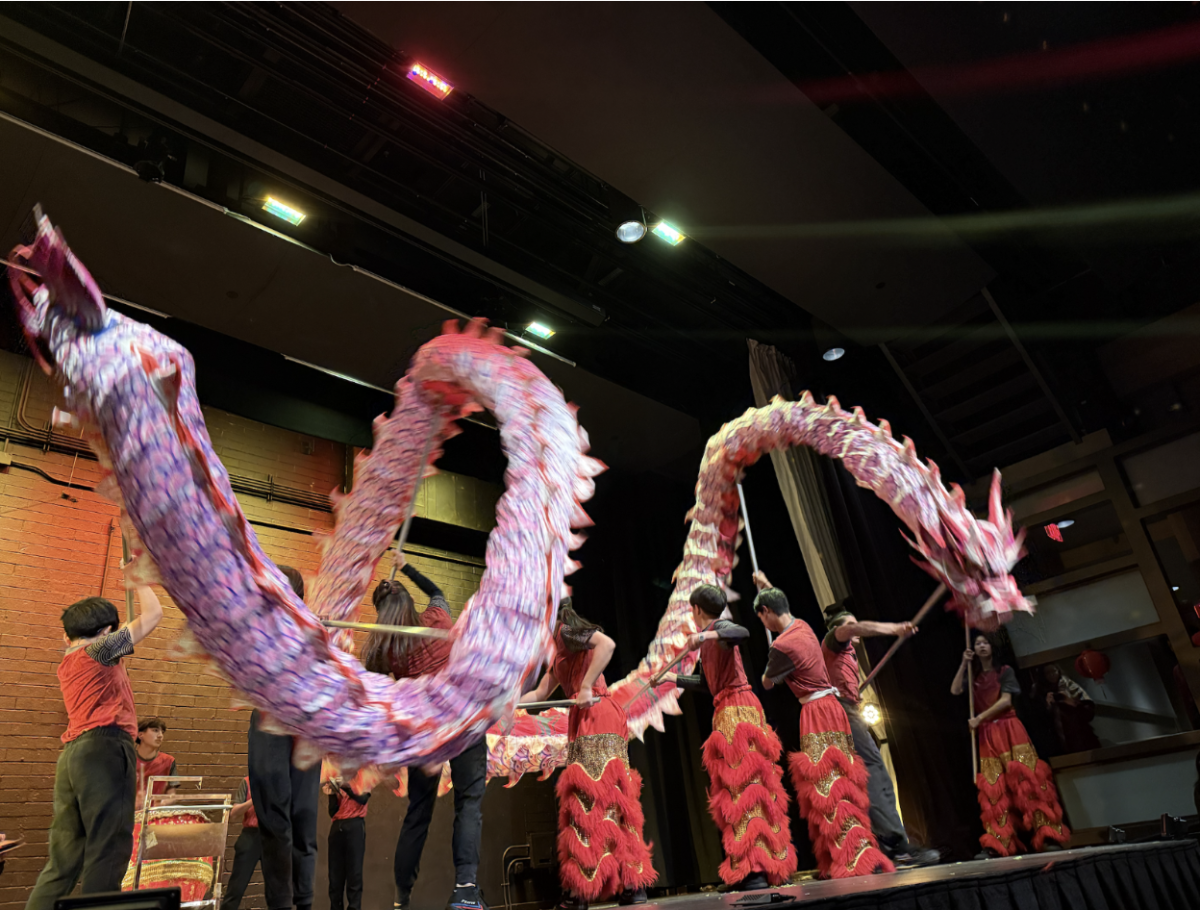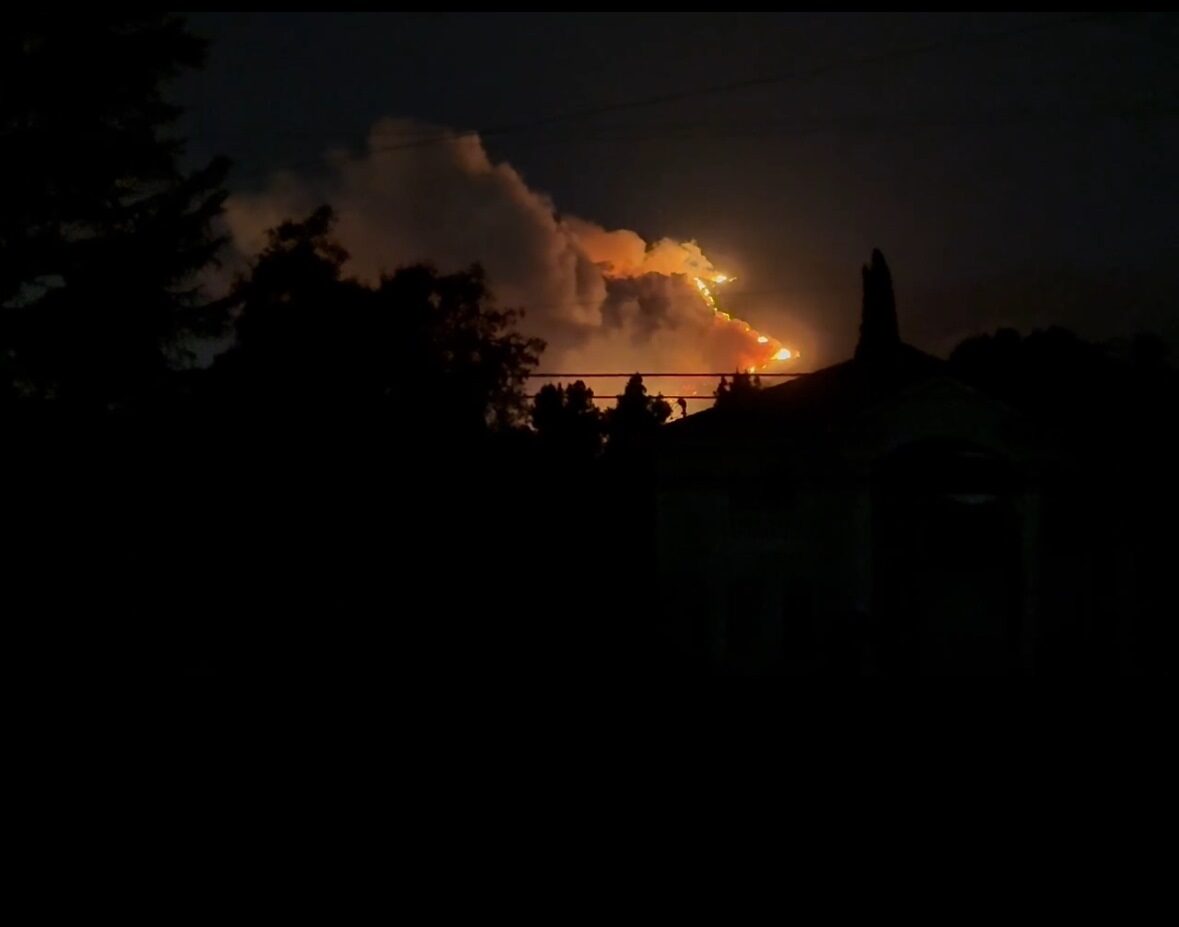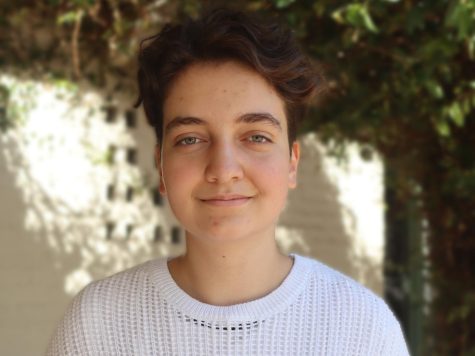Investigative journalist, documentarian, Russian opposition activist, and recent Oscar winner, Maria Pevchikh addressed a crowd at a special event at UCLA, coordinated by the UCLA Center for European and Russian Studies.
Dubbed undercover agent, “the woman of death,” and “Navalny’s killer” by Russian propaganda media, Maria Pevchikh emerged into the spotlight of Russian politics in 2020 after witnessing the assassination attempt of Russian opposition leader and her boss, Alexei Navalny.
This month, Pevchikh won an Oscar Academy Award for the 2022 documentary film “Navalny” that follows the events following Navalny’s life and recovery after being poisoned with the chemical-nerve agent Novichok. The film has amassed widespread praise, winning BAFTA awards and receiving a “universally acclaimed” rating from Metacritic.
Dr. Mark Dzula, Advisor of the Webb Canyon Chronicle and Director of Teaching and Learning Resources, Co-Editor of Sports and Opinion Dan Danylov (‘23), Staff Writer Elena Petrova (‘25), and Eunice Lau (‘23) attended the open event.
Titled “’Navalny’ and the Struggle for Russia’s Future: A Conversation with Investigative Journalist Maria Pevchikh,” Pevchikh discussed everything from her early journalistic years to the future of Russia, enthralling the audience with her resolute passion.
“Alexei Navalny and I shared a mutual dissatisfaction with what Russian journalism looked like back in 2011,” Pevchikh said. “We came up with an idea that we can do real investigative journalism.”
Pevchikh’s work with the Anti-Corruption Foundation (ACF) aims to expose corruption schemes behind the luxurious assets of Russian politicians. Examining phone logs, flight details, contracts, public statements, leaked personal data and a myriad of other sources, Pevchikh appears more like a detective than a journalist.
Pevchikh gained mass recognition for the 2020 investigation “Putin’s Palace,” a documentary which detailed an elaborate corruption scheme that allowed Putin and his inner circle to hide the billions of dollars that were used to finance the construction of the $956 billion estate.
“It was great to see the video gain so much traction,” said Elena Petrova (‘25), a Moscow resident. “People were so outraged by the sheer size of corruption that social media filled with discussions about the investigations and people went out to protest.”
Pevchikh’s exposés of the Russian government’s lavish secrets have made her a grave enemy to the corrupt regime of Vladimir Putin.
“The reason for us being so stubborn on investigating and publishing is that we believe corruption is Putin’s weak spot and something crucial to the survival of his regime,” Pevchikh said. “Eventually, we hope, that [corruption] will lead to the collapse of the entire regime, which is our ultimate objective, to free Russia from a dictatorship that Putin has established.”
Despite requests from the audience, Pevchikh refused to make any forecasts about the collapse of Putin’s regime as there are an infinite number of predictions that could be made. Furthermore, she believes that her duty is that of a journalist, not a political forecaster. Thus, she must stay involved in the present affairs of corruption-ridden Russia rather than discuss the endless possibilities of the future.
Pevchikh’s talk illuminated a story of brave struggle. Pevchikh herself possesses no formal training in investigative journalism; she involved herself with journalism as a concerned citizen determined to take action. Pevchikh’s extraordinary career emphasizes the importance of ordinary citizens’ journalistic work as a tool for political resistance.
In countries like Russia where freedom of speech is limited, mainstream media serves the interests of the authoritarian government, providing the people with a falsified reality. Independent journalism, however, continues to be a light of hope, serving the people instead of the elite through reporting topical, truthful, and oftentimes controversial news.


